Cheat Sheet: Judgements and Doctrines | Indian Polity for UPSC CSE PDF Download
Introduction
Judgements and doctrines are important decisions and principles from India’s courts that shape how the Constitution works. They help clarify laws, protect rights, and guide the government. This chapter explains key judgements and doctrines in simple language, showing their role in India’s democracy.
Meaning of Judgements and Doctrines
Judgements are court rulings that decide legal cases, while doctrines are principles created by courts to guide future decisions. Together, they strengthen India’s Constitution and laws.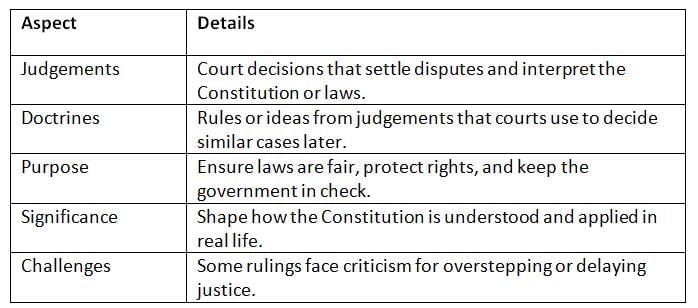 Key Points: Judgements and doctrines help courts protect rights and guide the government, making India’s democracy stronger.
Key Points: Judgements and doctrines help courts protect rights and guide the government, making India’s democracy stronger.
Key Judgements in Indian Polity
The Supreme Court and High Courts have given important rulings that influence laws, rights, and governance. Below are some landmark judgements.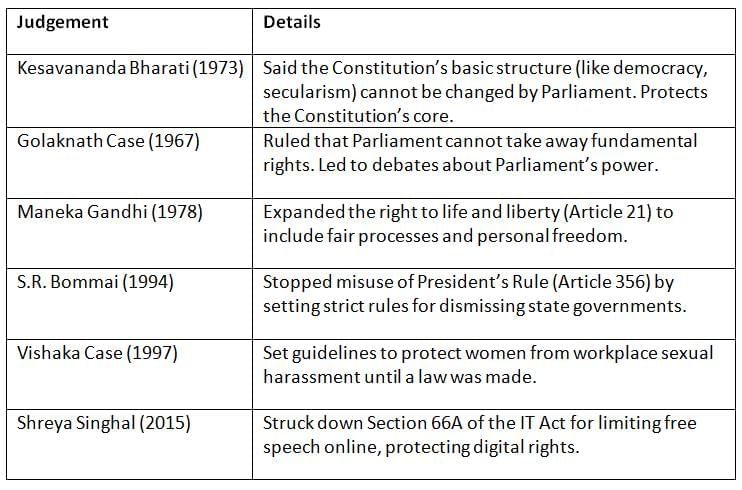
Key Points: These judgements protect rights, limit government power, and ensure fairness, shaping India’s laws and democracy.
Key Doctrines in Indian Polity
Doctrines are principles from court rulings that guide how laws are applied. They help keep the Constitution’s balance and protect citizens.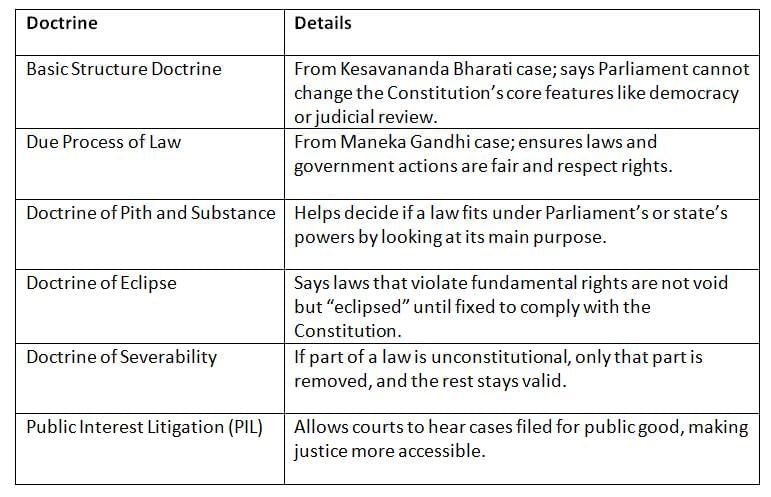 Key Points: Doctrines like Basic Structure and Due Process ensure laws stay fair and protect the Constitution’s core values.
Key Points: Doctrines like Basic Structure and Due Process ensure laws stay fair and protect the Constitution’s core values.
Role and Importance of Judgements and Doctrines
Judgements and doctrines are vital for keeping India’s democracy strong by protecting rights and guiding governance.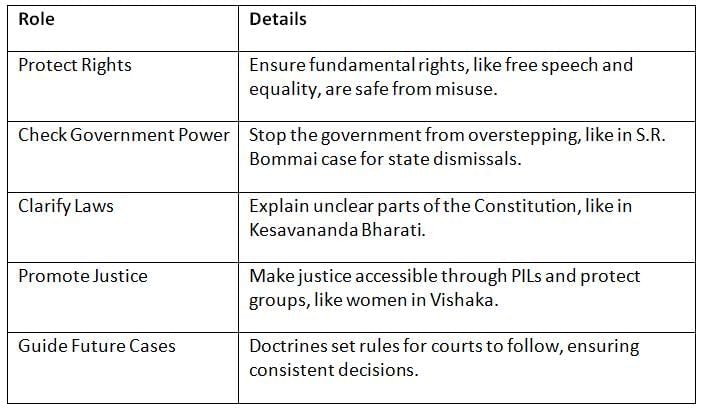
Key Points: Judgements and doctrines keep the government fair, protect people’s rights, and make laws clear and consistent.
Challenges with Judgements and Doctrines
While judgements and doctrines strengthen democracy, they face some issues that affect their impact.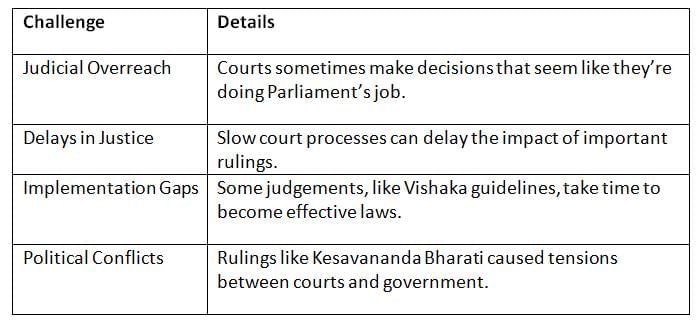
Key Points: Judgements and doctrines can face delays, conflicts, or criticism for going beyond the court’s role.
Chronology of Key Developments
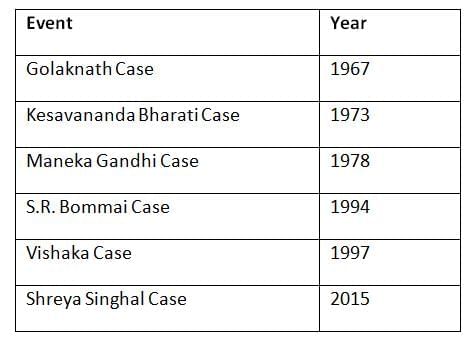
Conclusion
Judgements and doctrines are the backbone of India’s democracy. They protect rights, limit government power, and make laws clear. Landmark cases like Kesavananda Bharati and doctrines like Basic Structure ensure the Constitution stays strong. Despite challenges like delays or conflicts, they keep India’s democracy fair and just. Understanding them shows how courts shape a better India.
|
142 videos|777 docs|202 tests
|
FAQs on Cheat Sheet: Judgements and Doctrines - Indian Polity for UPSC CSE
| 1. What are the key judgments that have shaped the Indian polity? |  |
| 2. What is the significance of doctrines in Indian constitutional law? |  |
| 3. How do judgments and doctrines impact governance in India? |  |
| 4. What challenges do judgments and doctrines face in the Indian context? |  |
| 5. Can you provide a timeline of significant developments in Indian judiciary and constitutional doctrines? |  |
















